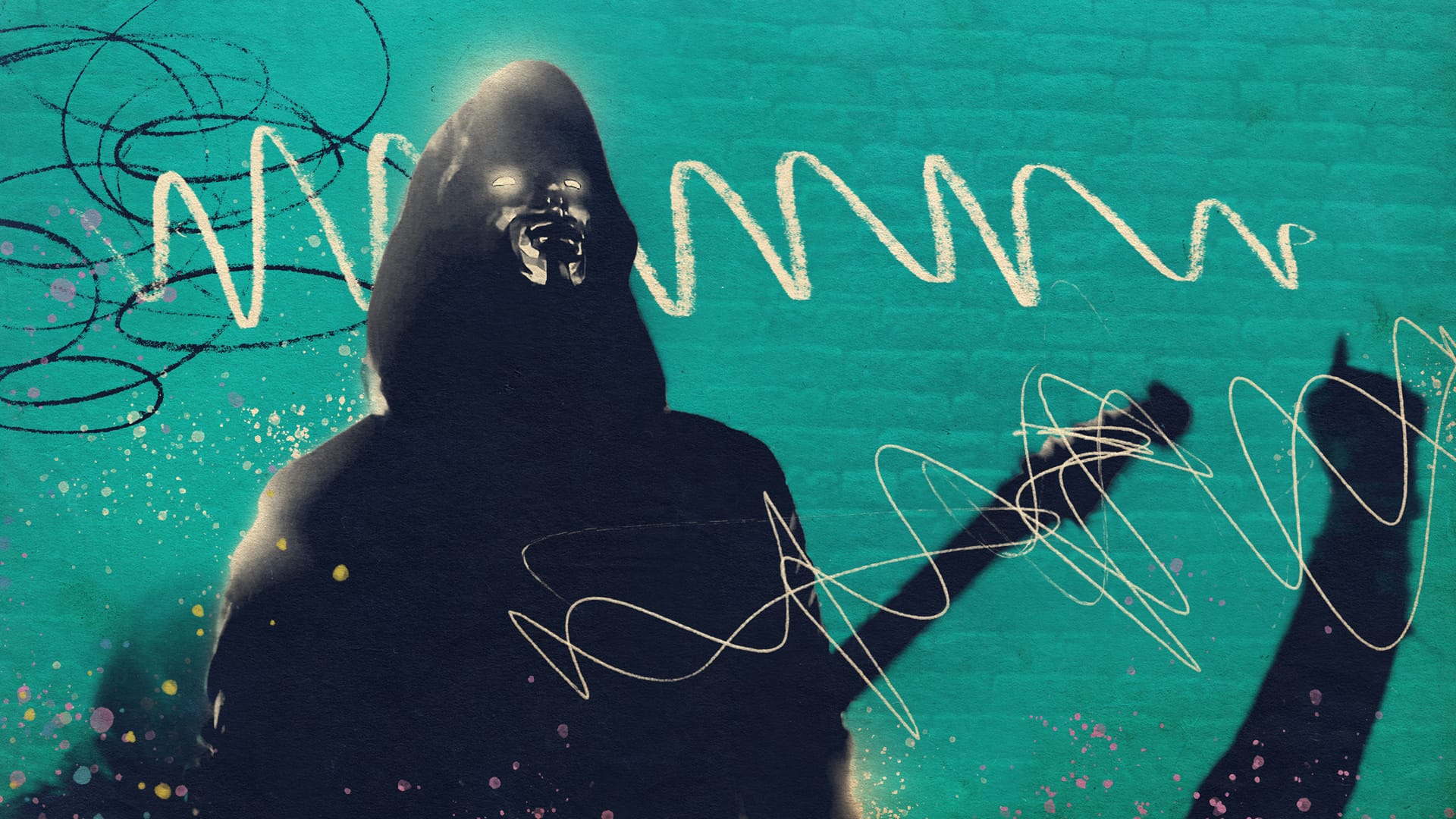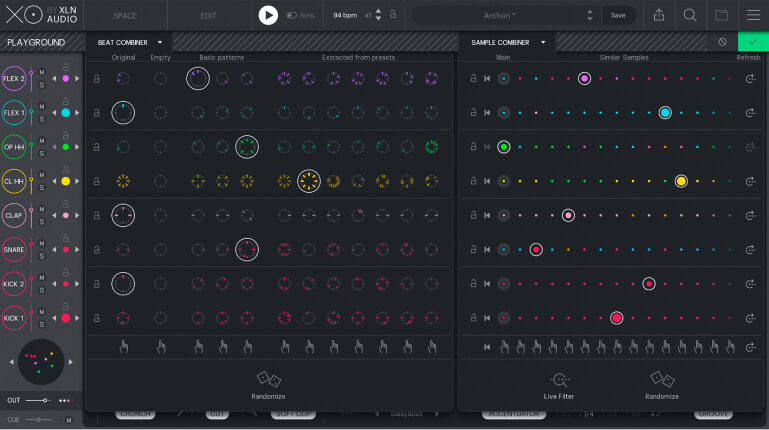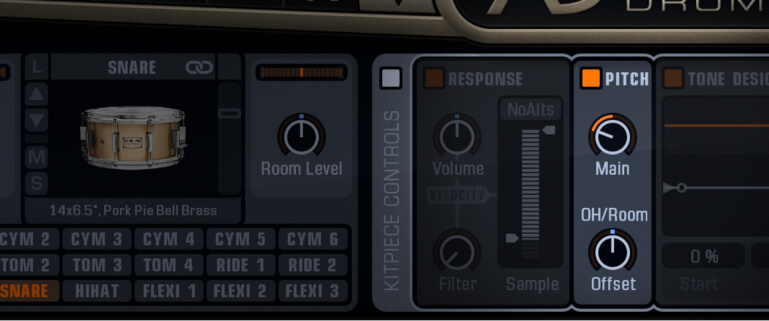Starcadian’s cheat codes for awesome drums

Starcadian is a trailblazer and pioneer in the modern Synthwave movement, alongside artists like Kavinsky, Com Truise, and the Midnight. His albums are like long-lost soundtracks to cult 1980s fantasy/science fiction films spawned from our collective memory bank's imagination: lucid dreams of neon and silhouettes against a setting California sun, coated in 16mm film grain. Hear how the synthwave pioneer gets his signature drum sound, and how he stays inspired.
How do you kickstart your creative songwriting process?
A lot of the time, I find myself starting with the groove. That's certainly been the case with XLN products, where sometimes I'll scrub through beats, let them play, and meditate on the rhythm — and then the music just comes to me. I'll work in clip mode and try different fills, splicing together different grooves. I would say 70% of the time, the actual sonics of each kit will lead me down the path of where the song wants to go.
I've built my own presets in Addictive Drums throughout the years, so I know exactly where I want to go the moment I think of the preset name. I’ll combine a United Heavy kit from Addictive Drums with a Rickenbacker bass, and I know exactly what's going to happen, you know? he says smiling. Then, the only thing I need to tweak is the chord progression — but I know exactly what I want to do.
Ever so rarely do I begin with a top loop, but that has now been completely replaced by Life by XLN Audio. I'll just put random samples I have through Life, mix them up, and then just develop that loop. If I want to get super fancy with it, I'll scroll through the grooves in Addictive Drums 2, sync it with Life, hit Randomize, and just wait until the two blend together. If I get a little hint of what I want, I'll stop to develop it properly.

I do that quite a lot with XO by XLN Audio, too. I will go to the EDIT section and the Beat & Sample Combiner, and randomize the beat and samples. I’ll go at it furiously and stop — almost like playing roulette — and then work with what I have. It's almost kind of like throwing chicken bones and divining the song.
Sometimes you just know the song you want to make, it's in your head. You can sing it, you know what you’re going to make - you just need the time to make it. Other times you just want to experiment and see what the universe is throwing your way. The randomizing function in XO legitimately does something on a groove level, that not a lot of plugins can. There are plenty that do it on the chord level, but groove is such an abstract and interesting thing to play with. XO has the nice balance of guiding you towards mass consciously agreed-upon grooves that work, and new ideas - and that’s just such a leg up.

How do you make drums sound like Starcadian drums?
“I usually start from the United Heavy or Black Velvet kit in Addictive Drums 2. The first thing I do is I pitch down the snare. I “smiley face” the snare (adding an EQ that looks like a smiling face), that gives it a little extra oomph. I then shorten the sustain on the kick, and I’ll throw a DS-10 Drum Shaper on it to give it a little bit of a transient boost. For the kick, I want the attack to be immediate and then have a short drop-off, if I’m going for more of an electronic sound. If I'm going for more of an analog sound, I'll keep a little bit of a tail.

And I'll tell you why I cut the sound really short. Because, after I do all this, I put the DS-10 Drum Shaper on it, and then I add a glue compressor where I crank the attack, bring down the release to zero, and crank up the ratio—and I'll 70/30 it so it's not completely insane,” he says laughing. “And then I put an OTT before those. That gives it a sparkle and upward compression, so anything that I kill with drop-offs in Addictive Drums 2 gets brought back quite a bit from the room sound. So it’s compensating for all the muddiness and vintageness that OTT brings.
I’ll also use RC-20 Retro Color on top just to give it that human touch. Sometimes I’ll also break out each fader, each element, with Addictive Drums’ multi-out feature, and I'll do quite a bit of imaging on the snare (reverb, stereo spread, etc), which gives it quite a bit of volume.
Specifically in Bitwig, there's just a factory preset called ‘Stereoiser’ which just gives it a little bit of an offset delay on the left and right channels. That with a smiley EQ gives it a beautiful kind of like ‘70s tight, but big, anthemic snare. It's got that nice buzziness, but thickness to it, you know? I just can't get enough of that sound. I'm very anti high-pitched tight snares - not anti, but I just don't find a lot of need for them in my style. I like low rumbly, dead, EQ’d snares.
I always sublayer the snare with the kick in MIDI, so the snare is never by itself - but I do modify the kick under the snare. Sometimes I'll have the snare be side-chained by the kick. Since I break out each sound with individual outputs from Addictive Drums, they come out in their own chain. So I send the kick to the snare so it gives a little bit of a sidechain dip. Every time I play them together, it just glues them together a little bit more.”

Starcadian draws parallels between his work as a VFX/visual compositing artist and his music-making:
“I gravitate towards the same aesthetic for sound and visuals - even though it’s separate objects pieced together, they should feel like they live in the same world. It’s that thing that chromatic aberration in a vintage lens does for an image when I do visual effects - the chromatic aberration makes all the sharp edges slightly blurry in the color channels and glues the image together. The same thing goes for sound. I guess what I do is sound aberration - it’s vintage sound compositing.” he concludes with a smile.
Starcadian’s "Neon Dreams" XOpak is your cheat code to the nostalgic sound of classic 1980s soundtracks and the modern-day Synthwave sound. Genre-defining, hard-hitting gated snares, punchy kicks, arpeggiated synth leads, and pummeling synth bass sounds will fuel your 80s-flavored productions.